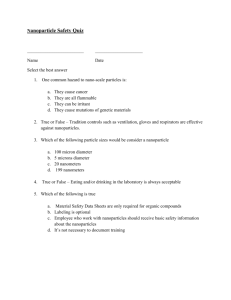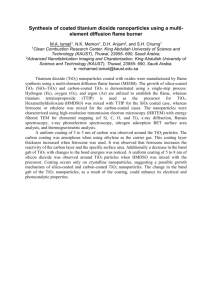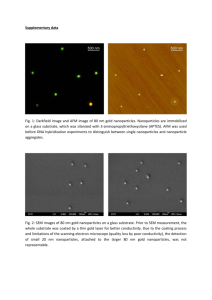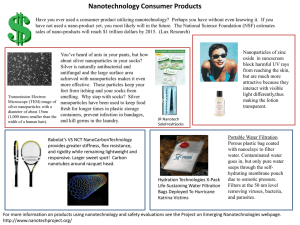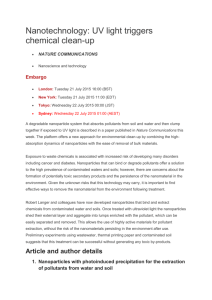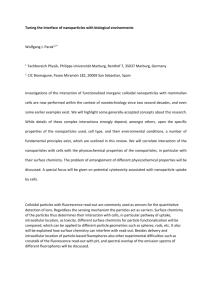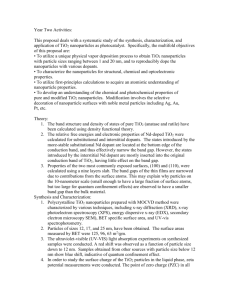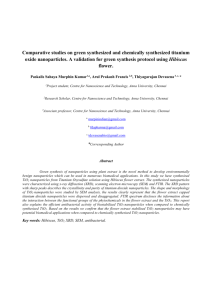Effect of TiO2 nanoparticles on emotional behavior and
advertisement
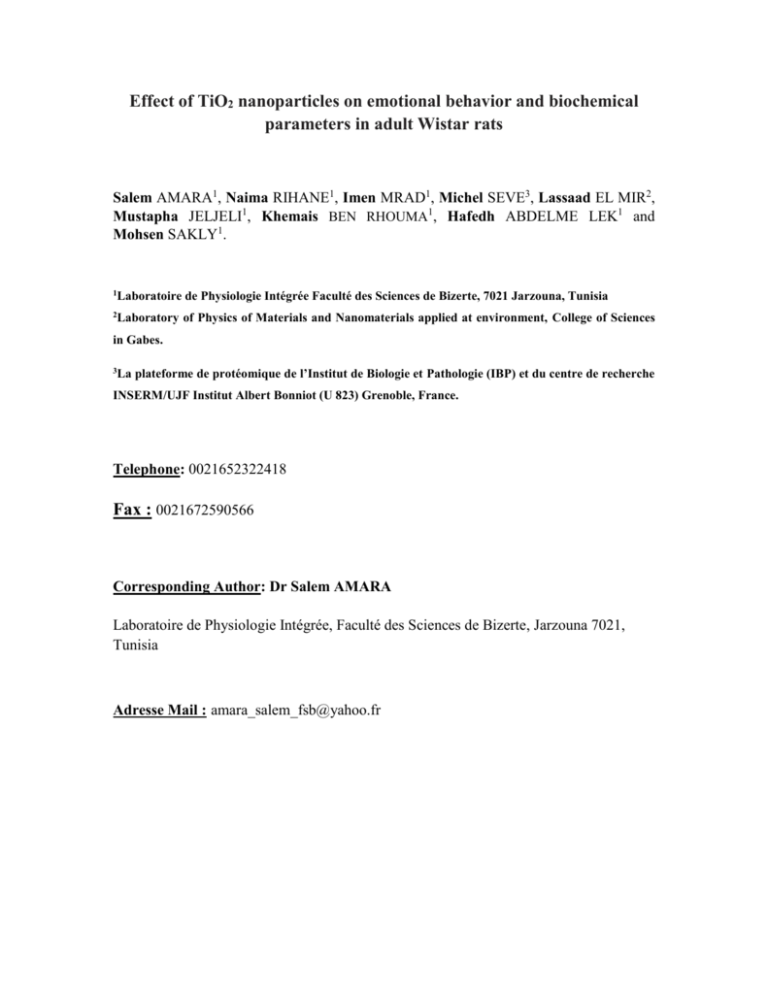
Effect of TiO2 nanoparticles on emotional behavior and biochemical parameters in adult Wistar rats Salem AMARA1, Naima RIHANE1, Imen MRAD1, Michel SEVE3, Lassaad EL MIR2, Mustapha JELJELI1, Khemais BEN RHOUMA1, Hafedh ABDELME LEK1 and Mohsen SAKLY1. 1 Laboratoire de Physiologie Intégrée Faculté des Sciences de Bizerte, 7021 Jarzouna, Tunisia 2 Laboratory of Physics of Materials and Nanomaterials applied at environment, College of Sciences in Gabes. 3 La plateforme de protéomique de l’Institut de Biologie et Pathologie (IBP) et du centre de recherche INSERM/UJF Institut Albert Bonniot (U 823) Grenoble, France. Telephone: 0021652322418 Fax : 0021672590566 Corresponding Author: Dr Salem AMARA Laboratoire de Physiologie Intégrée, Faculté des Sciences de Bizerte, Jarzouna 7021, Tunisia Adresse Mail : amara_salem_fsb@yahoo.fr Abstract The rapidly developing field of nanotechnology is becoming a potential source for human exposure to nanoparticles. Titanium dioxide (TiO2) nanoparticles have been widely produced in industrial processes for several years. The aim of this study was to investigate the effects of TiO2 nanoparticles on plasmatic biochemical parameters and the emotional behavior in adult Wistar rats. Rats were treated by intraperitoneal injection of TiO2 nanoparticles (20-30 nm) at a dose of 25 mg/kg. For toxicity evaluation of nanoparticles sample, body weight, organ coefficient, blood biochemistry panel assay (AST, ALT, LDH, uric acid, creatinine, and glucose content) and emotional behavior parameters were determined. Sub-acute TiO2 nanoparticles treatment decreased the body weight, but increased the relative brain weight. Biochemical assessment in plasma samples showed that TiO2 nanoparticles injection increased uric acid concentration and AST activity in rats. However, the same treatment decreased the creatinine level, but had no effect on glucose concentration, ALT and LDH activity. The emotional behavior of control and treated rats was tested in elevated plus-maze. Interestingly, our results showed that TiO2-treated rats spent more time in the secured closed arms and entered the anxiogenic open arms less frequently than control. Our results suggest that TiO2 nanoparticles intoxication could altered biochemical parameters related to changes in organ function and leads to emotional behavior impairment of rats. Keywords: TiO2 Nanoparticles, Emotional behavior, Elevated plus maze, Biochemical parameters, Rats.
